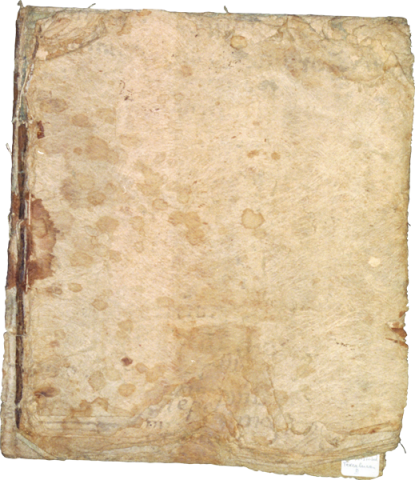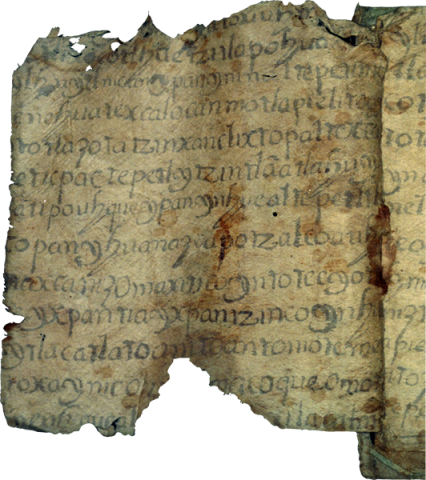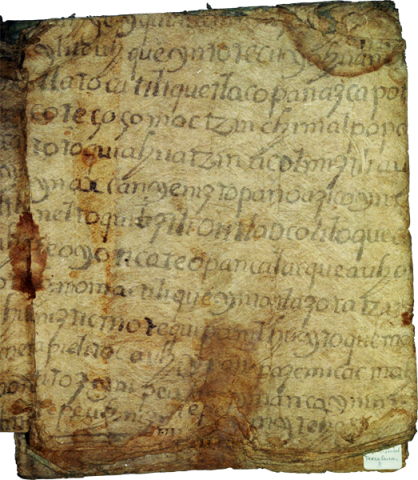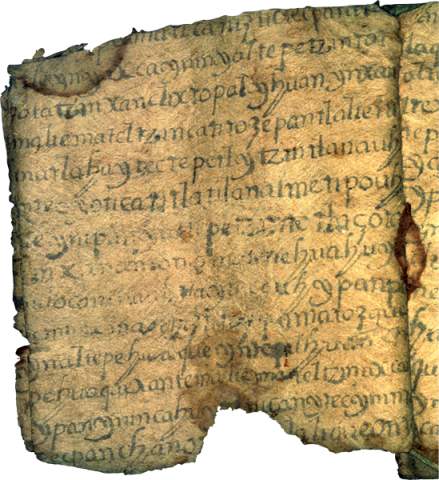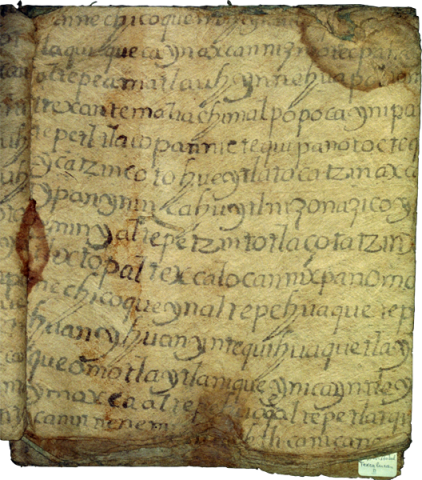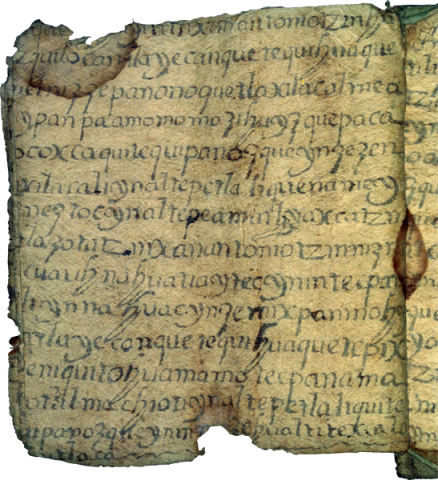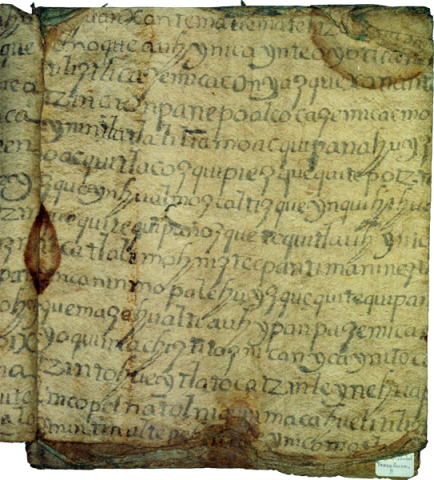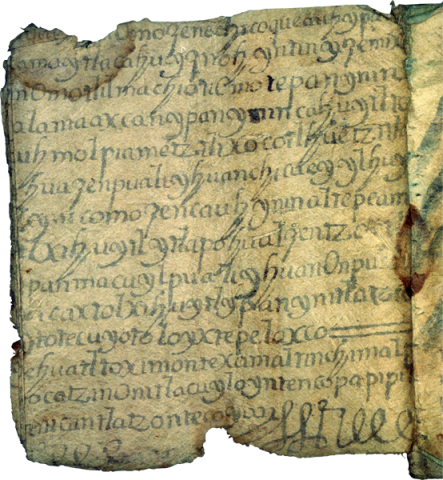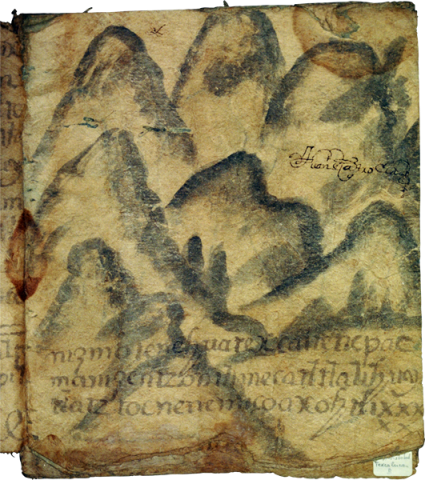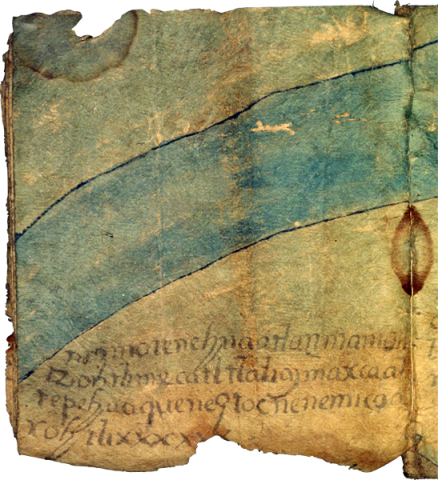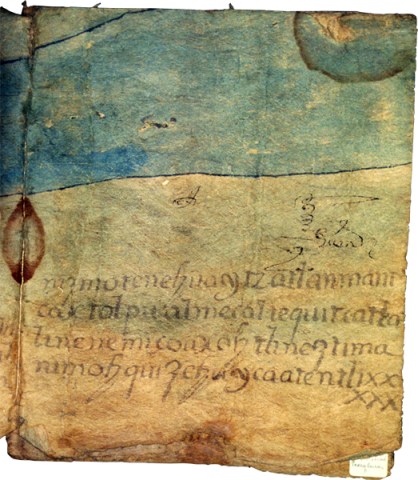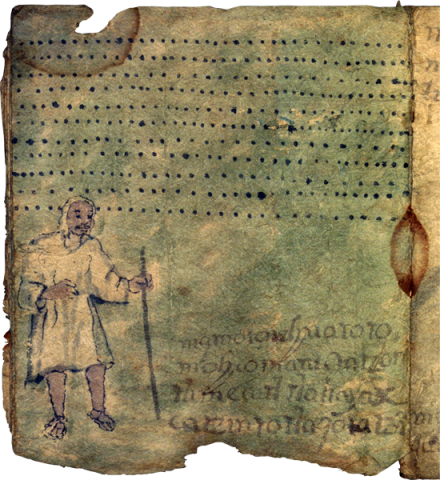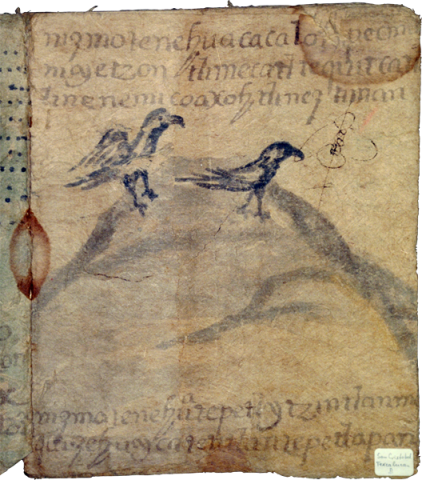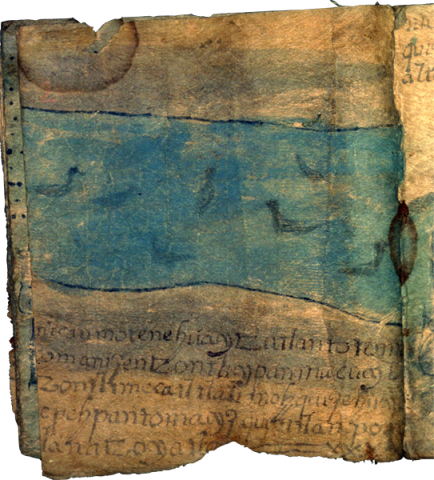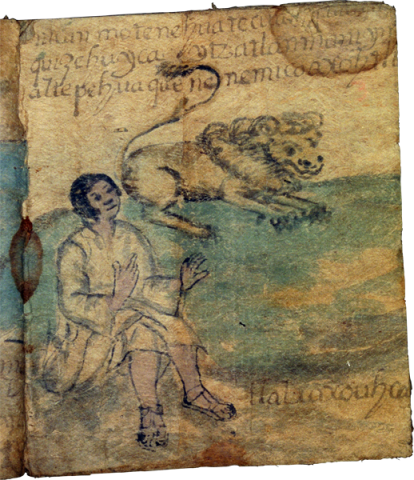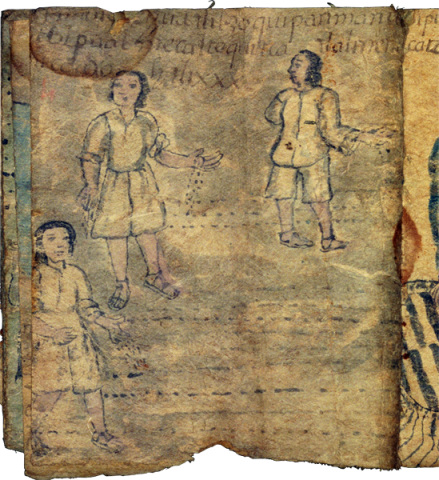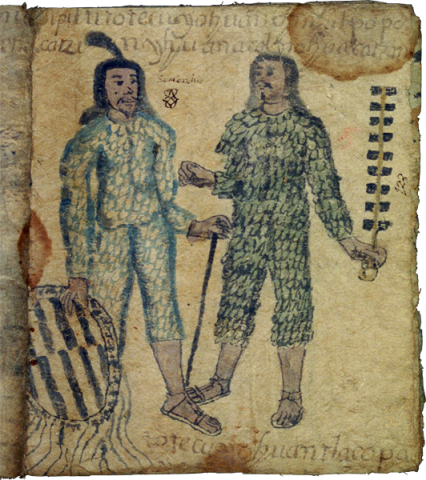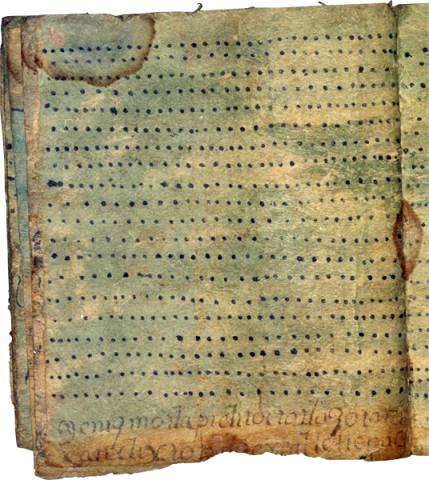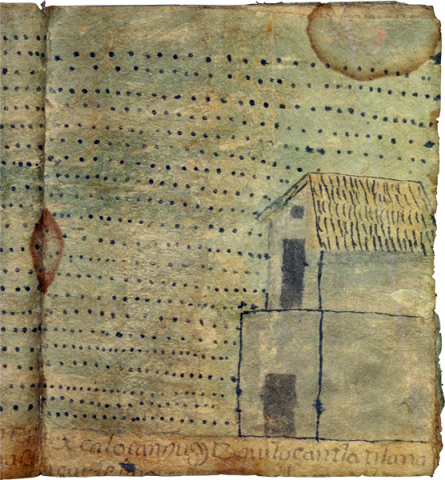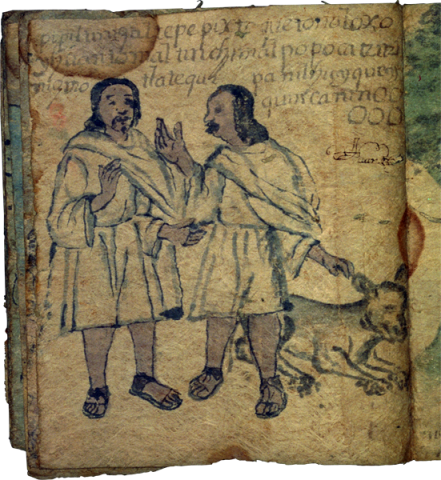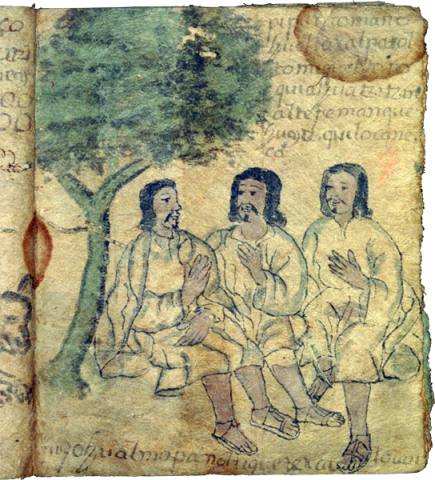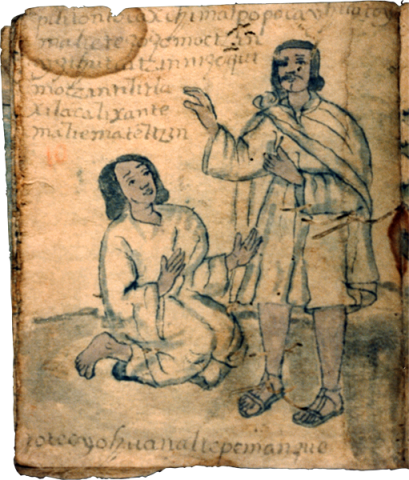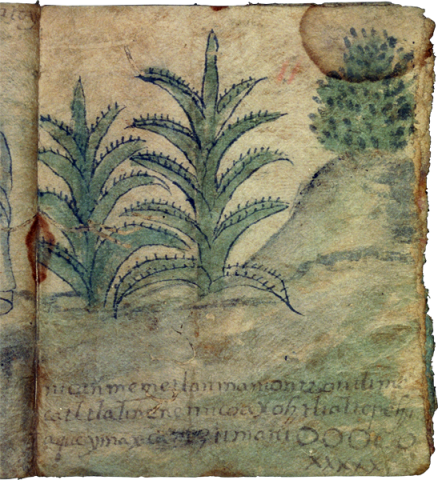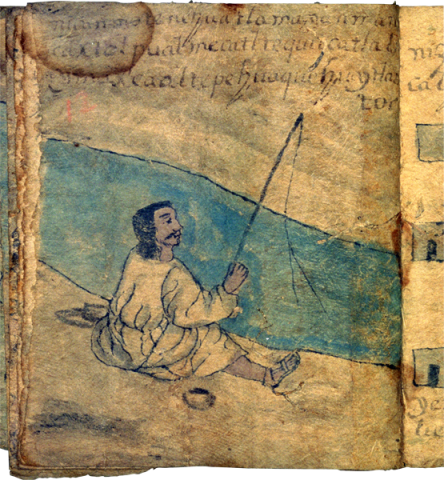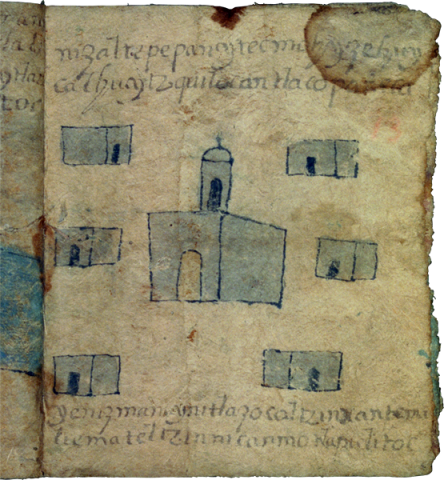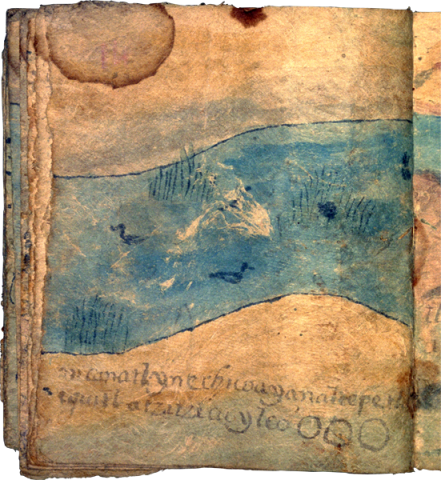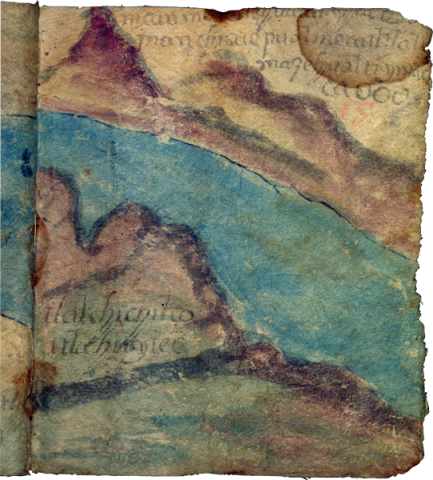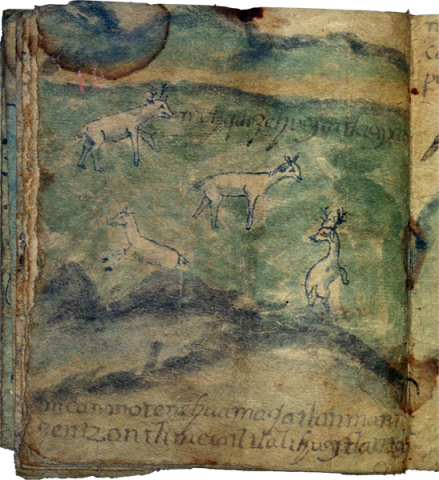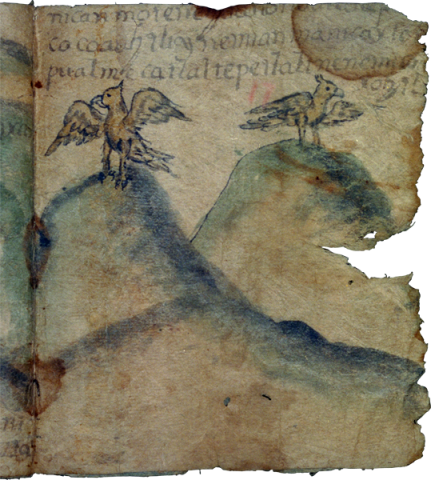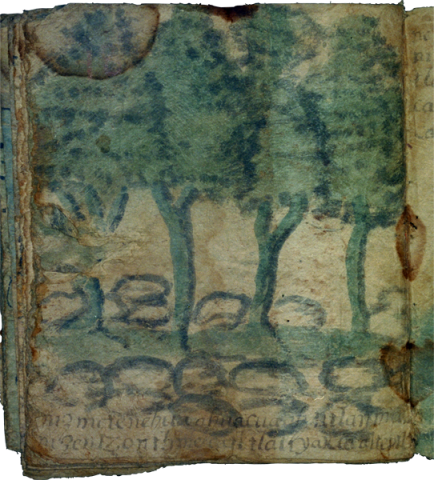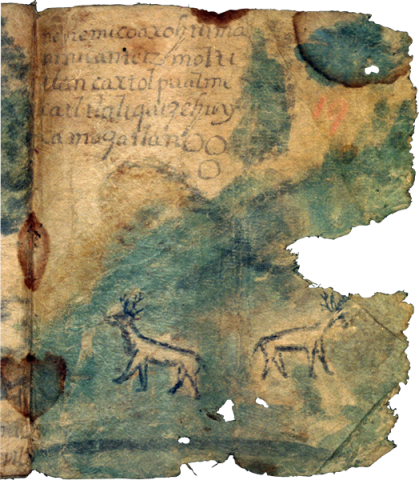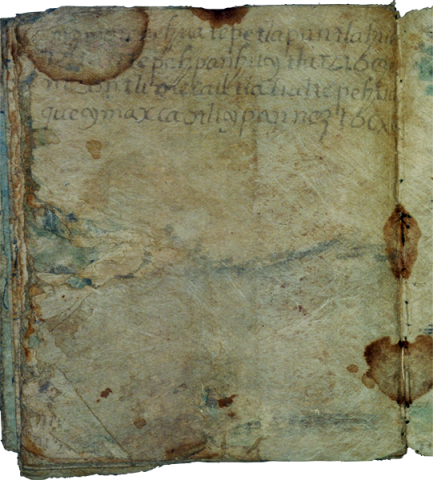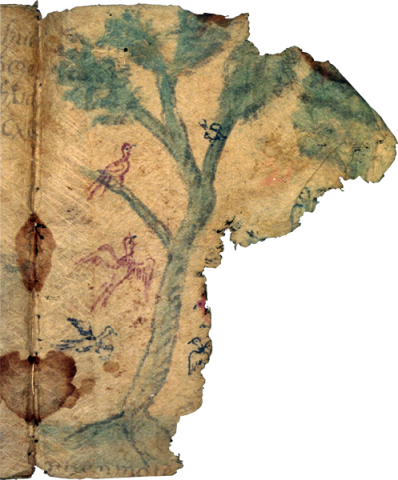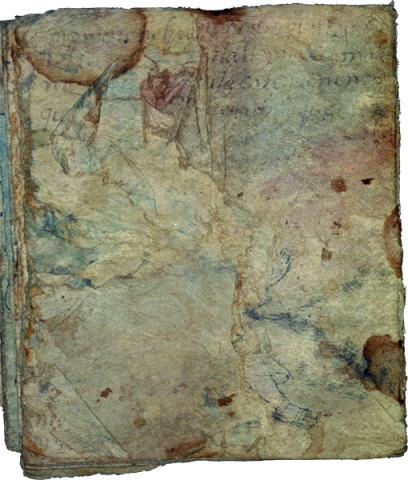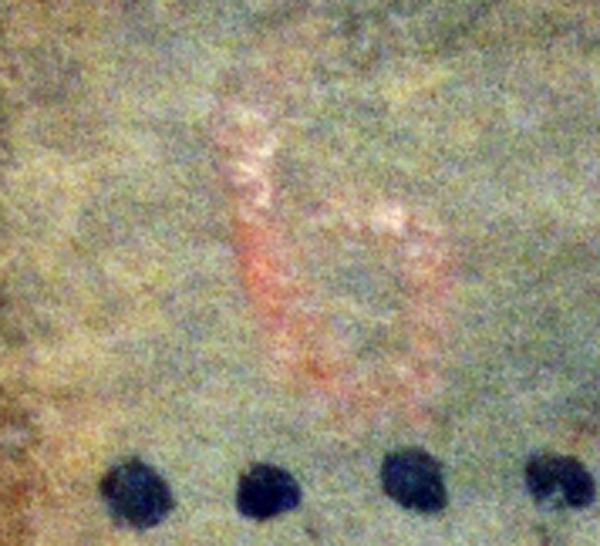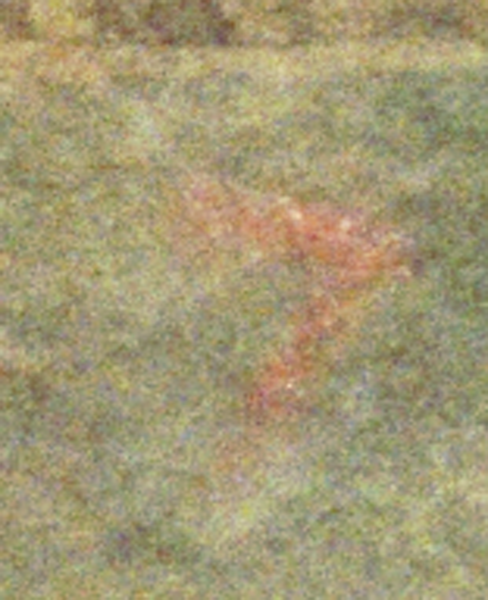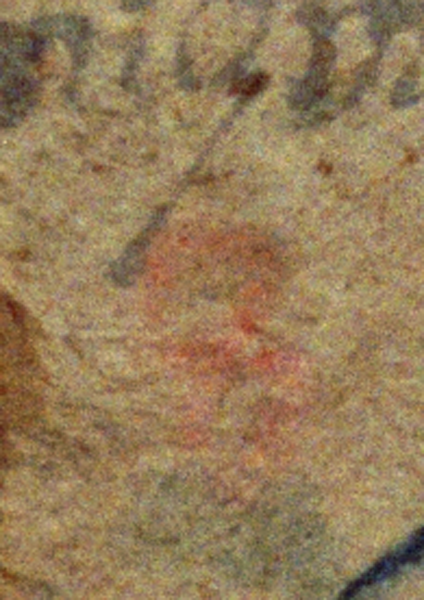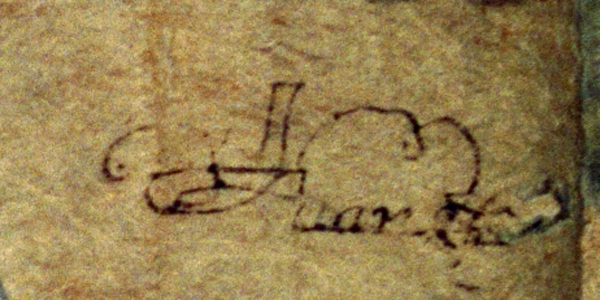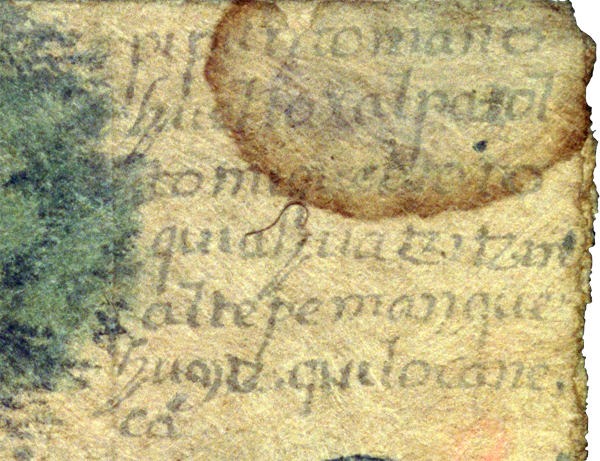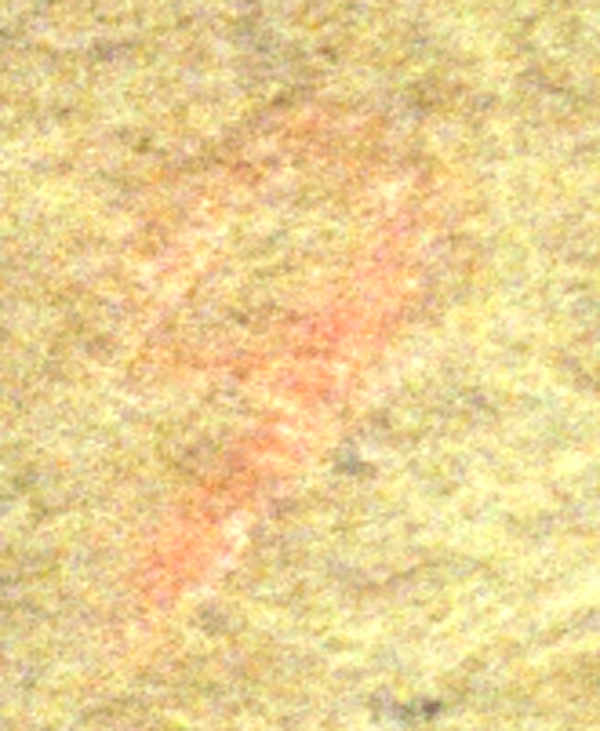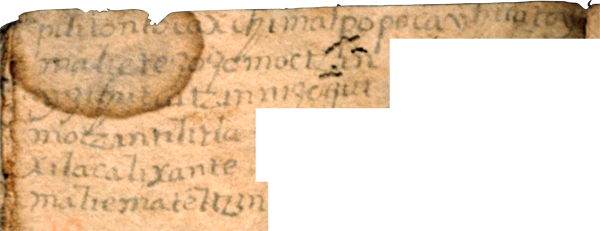This manuscript is associated with the indigenous communities of San Cristóbal Texcalucan and Santa María Magdalena Chichicaspa in the modern state of Mexico, republic of Mexico. The manuscript is an unpublished example from the genre called “Techialoyan Codices” — late colonial, Nahuatl-language manuscripts written and painted on amatl (amate in Spanish, the name for a native fig-bark paper). Techialoyan manuscripts date from the late-seventeenth and early eighteenth centuries. This particular manuscript is listed as number 744 in the Techialoyan catalog published in the Handbook of Middle American Indians in 1975. The authors of the catalog state that it was burned by the Audiencia of New Spain in 1703. It was clearly ordered to be burned, but it somehow survived that fate. The small communities of San Cristóbal Texcalucan and Santa María Magdalena Chichicaspa are in the larger municipality of Huixquilucan, another Techialoyan town. The Huixquilucan manuscript is number 724 in the HMAI catalog. The Texcalucan and Chichicaspa manuscript consists of seventeen folios measuring about 8” by 8”, in a typical organization for the genre, of two-sided, single leaves that have been bound on the left margin. The manuscript is both pictorial and textual. Four of the folios contain full, running text in Nahuatl. Graphics tend to represent landscapes in and around the community. We also see men working fields, fishing, and gathering in small meetings. One scene shows two men from pre-Columbian times wearing feathered costumes, one holding a war shield and the other an obsidian-studded club. In the entire manuscript, only one woman appears, doña María Tezozomoctzin, wife of don Alonzo Chimalpopoca, who stands next to her. (Stephanie Wood)
Texcalucan y Chichicaspa, Manuscrito Techialoyan de
Title variants:
Manuscrito Techialoyan de San Cristóbal Texcalucan y Santa María Magdalena Chichicaspa
Principal editor:
Stephanie Wood
Provenance:
This manuscript was in the private collection of Jay I. Kislak in Miami Lakes, Florida, in the late twentieth and early twenty-first-century. The manuscript was for sale for a time in the mid-1980s at H.P. Kraus Rare Books and Manuscripts in New York. It is not known if Mr. Kislak purchased the manuscript from Kraus or if it changed hands one or more times before he acquired it. Prior to the 1980s, its ownership history is unknown. Mr. Kislak loaned the manuscript to the Library of Congress for a time in the first decade of the twenty-first century.
